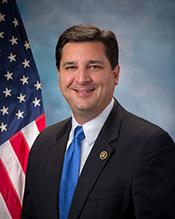0
FUELS Act
12/15/2023, 3:58 PM
Summary of Bill HR 3763
The FUELS Act aims to incentivize the production and use of alternative fuels such as biofuels, natural gas, and electricity. It does this by providing tax credits and other financial incentives to companies that produce and use these fuels.
Additionally, the FUELS Act includes provisions to improve the infrastructure for alternative fuel vehicles, such as increasing the number of refueling stations and providing grants for research and development in this area. Overall, the FUELS Act is designed to reduce the country's dependence on traditional fossil fuels and promote the use of cleaner, more sustainable alternatives. It is currently being debated in Congress and has garnered support from both Democrats and Republicans who are concerned about the environmental impact of traditional fuels.
Congressional Summary of HR 3763
Farmers Undertake Environmental Land Stewardship Act or the FUELS Act
This bill increases thresholds for requiring a farm to have a plan to address oil spills.
Currently, regulations require a farm to have an oil spill control and prevention plan that is certified by a professional engineer if the farm's aboveground oil storage capacity is above a certain threshold or if the farm has a reportable oil discharge history. A farm with lower aboveground storage capacity and no reportable history is either allowed to self-certify its plan or not required to have a plan at all, depending on the farm's storage capacity.
Under the bill, the Environmental Protection Agency must require a farm to have a professionally certified plan if the farm has an aggregate aboveground oil storage capacity of 40,000 gallons or more, whereas the current threshold is 20,000 gallons. The bill also raises the aggregate capacity thresholds at which a farm with no reportable oil discharge history may self-certify its plan or is not required to have a plan.
The bill also limits when a farm's aboveground oil storage containers on separate parcels shall count toward the farm's oil storage capacity for the purposes of these thresholds.


